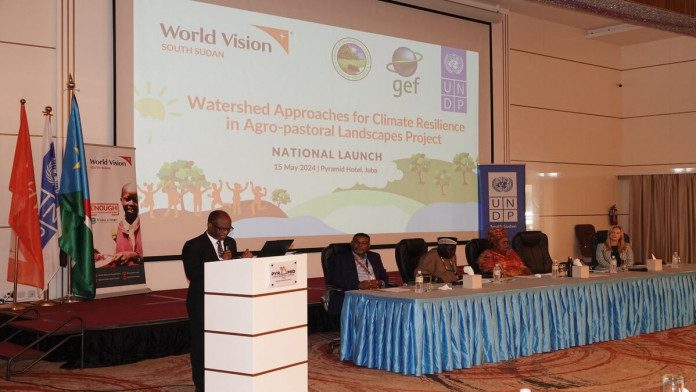News in Brief:
– South Sudan’s $33 million WACRESS project tackles climate change by strengthening climate resilience and restoring ecosystems in Northern Bahr el Ghazal State.
– The project aims to empower vulnerable populations through climate-smart agriculture and local adaptation strategies.
In an effort to address the growing threat of climate change, South Sudan’s Ministry of Environment and Forestry, alongside World Vision, has launched the Watershed Approaches for Climate Resilience in Agro-pastoral Landscapes (WACRESS) project.
This $33 million initiative aims to bolster climate resilience and restore ecosystems in Aweil Center and Aweil East counties within Northern Bahr el Ghazal State. With a target of benefiting over 75,000 people, the project will work to rehabilitate 15,000 hectares of degraded land by December 2028.

It features a collaborative funding effort between the South Sudanese government, the United Nations Development Programme (UNDP), the Global Environment Facility (GEF), World Vision, and the UN Industrial Development Organization (UNIDO).
Focus on participatory approaches and climate-smart solutions
Josephine Napwon, South Sudan’s Minister for Environment and Forestry, highlighted the project’s urgency, emphasising that South Sudan is one of the countries most affected by climate change in the region.
She added that WACRESS will employ ‘participatory approaches to empower communities, strengthen agricultural value chains, and promote climate-smart practices’.

Also, Mesfin Loha, World Vision’s South Sudan Director, echoed the importance of collaboration, stating that WACRESS will focus on building resilience with vulnerable communities by restoring ecosystems. The initiative will employ watershed management tools and re-establish market linkages for agricultural products. It will also equip extension agencies to enable them support communities in adopting climate-smart agriculture and integrating climate change adaptation strategies into local plans.
Meantime, decades of decreasing rainfall and rising temperatures have threatened the country, as communities heavily rely on rain-fed agriculture. Subsequently, the government has developed adaptation plans and collaborates internationally, but limited resources and ongoing conflict hinder progress.



